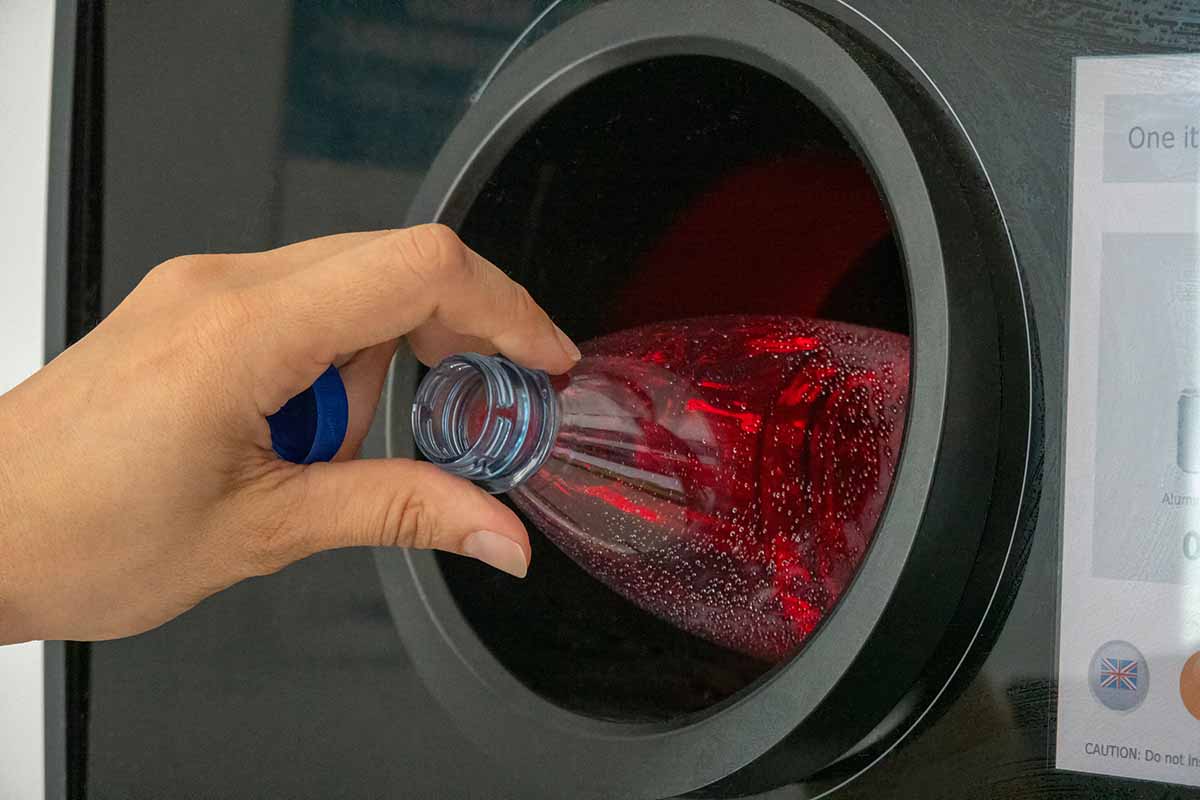
After a 2022 program overhaul allowed most retailers to opt out of deposit system container collection, a report from Cleaner Iowa found that there are 29 counties without a redemption center. | Veja/Shutterstock
Overhauls to Iowa’s bottle bill in 2022 that allowed retailers to opt out of collection are reducing access, as industry players warned when the bill passed. But redemption centers are stepping up to help solve the problem – including by launching a new bag drop program.
The 2022 bill tripled the bottle handling fee but allowed grocery stores and other retail entities to not join the collection system. Now a study from nonprofit advocacy group Cleaner Iowa has found that while the number of state-licensed redemption centers increased to 104, that wasn’t enough to offset the number of grocery and convenience stores that stopped taking containers back.
There are 29 counties without a redemption center, according to Cleaner Iowa. The study surveyed more than 1,000 Iowa businesses, finding that only 8.7% are redeeming containers. In addition, only eight of 143 businesses contacted that still are required to participate in the state recycling law under convenience standards are doing so.
A legislative committee will review the program in 2025. One legislator, Republican Rep. Brian Lohse, suggested in a local newspaper that the entire deposit return program may need to be repealed, but the program enjoys strong public support. A 2022 study from Cleaner Iowa found that 84% of Iowans said the recycling law is good for the state.
Troy Willard, founder and CEO of redemption business Can Shed, told Resource Recycling that a full repeal of the bottle bill “is not really on the table.” He’s worked closely with Cleaner Iowa and legislators and said the report raises awareness of what needs to be done to improve the program.
Letting retailers opt out was flagged as a problem back in 2022. Willard said the approach was backward, and redemption centers should have been given more time with the increased payments to build out infrastructure “before they let all the retailers out, but it is what it is.”
“The extra money has allowed other redemption centers to think about automation and putting up new places, but it’s a slow process,” he said. “If you’re in a small community with 5,000 to 10,000 people in it, it’s a cash-intensive business model. People aren’t just going to stick their neck out and do it, which is why we haven’t seen more redemption centers open up.”
Willard said he will continue to advocate for better policy in the future, such as an expansion of the program. A 10-cent deposit would also help, he added, but “that doesn’t really resonate well with the legislature right now.”
“That’s really the minimum number it needs to be to drive a good, solid, healthy 80-plus-percent redemption rate,” he said.
Beyond advocating, Willard is also starting up a bag drop program, which he announced Monday.
BottleDrop Iowa
It was just happenstance that the report on redemption deserts came out as the Can Shed was preparing to announce its bag drop program, Willard said, but he does think the program will help improve the situation.
“We’ve got a really long time bulk bag return program that works really well, people have adapted to it, and really that’s predominately how most of the containers come to us now,” he said.
“We felt like if Iowa was trying to usher in a convenient way of dropping bags off, we should adapt OBRC’s program, which is the best version,” he added, referring to the Oregon Beverage Recycling Cooperative.
Iowa will be hitting the ground with a slightly more app-based version than is currently operating in Oregon. Instead of using kiosks to print account-specific stickers that users place on their bags before dropping them off, each bag will have a QR code printed on it that users will scan with the app before depositing, which will link the specific bag to the user’s account.
Transferring the redemption funds digitally instead of getting a cash payout will also be possible, Willard said. The Can Shed has five public-facing buyback centers and is putting the dropdoors into four initially. Willard is also working to create a couple containers that can be placed in parking lots of willing retailers.
“We’re beta-testing them, finding some dealer and retailer partners who are interested in trying to get the customer foot traffic back to their store,” Willard said.
To start, BottleDrop Iowa will not have the charitable donation option that Oregon does, where nonprofits can sign up and people can donate their redemption values via special bags, or the Bottle Drop Plus option, which gives shoppers who redeem their refunds at partner grocery stores 20% more value if they spend it on groceries.
“We hope to evolve it to include the fundraising charitable aspect of it and hope to find someone who wants to integrate it into their loyalty program,” Willard said.
Even so, “it’s definitely a step in the right direction” to solving the redemption desert issue, Willard said.
“It’ll be interesting to see how it goes,” Willard said. “We do have another program in Des Moines, Drop It, which is the white label version of Maine’s program. This will probably be the first time two competing bag drops are working to gain traction in the state.”
Maine has been running a bag drop program, CLYNK, since 2006, which is based out of grocery stories. Oregon’s program, which is similar, started in 2010.
Willard did not anticipate much competition between the two Iowa programs, at least in the near future, because “there’s certainly a lot of work to be done.”